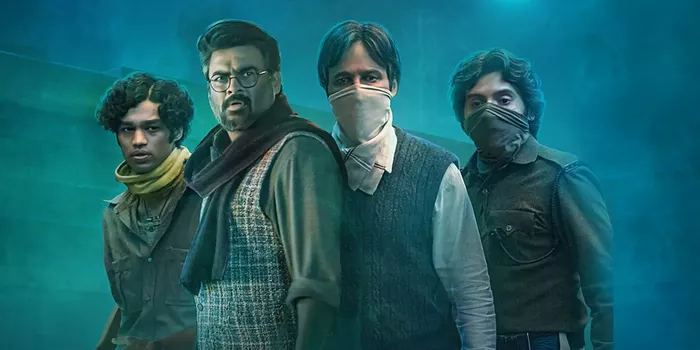In the realm of gripping narratives, The Railway Men on Netflix stands out as a poignant miniseries that delves into the unsung heroes of the Bhopal gas tragedy in 1984. As viewers are taken on a heart-wrenching journey through this tragic chapter in history, the series weaves together a tapestry of bravery, sacrifice, and resilience. In this comprehensive exploration, we unravel the ending of The Railway Men, shedding light on the incredible acts of heroism that define the miniseries and provide a nuanced understanding of the characters’ journeys.
I. The Heart of the Tragedy: Bhopal Gas Disaster of 1984
At the core of The Railway Men lies the tragic backdrop of the Bhopal gas disaster in 1984. The miniseries takes on the responsibility of narrating the harrowing events of that fateful night while paying homage to the countless lives affected. Keeping the facts of the disaster intact, The Railway Men serves as a poignant reminder of the real-life tragedy that unfolded in Bhopal, bringing to the forefront the human toll and the need to remember those who suffered.
II. Fictionalizing Courage: Ordinary Heroes in Extraordinary Circumstances
While grounded in historical events, The Railway Men takes a creative approach by fictionalizing the stories of ordinary individuals thrust into extraordinary circumstances. The series introduces viewers to characters like Iftekaar and Balwant, who, despite lacking superhero capes, demonstrate extraordinary bravery and selflessness. The storytelling allows the miniseries to explore the human aspect of heroism, portraying individuals who rise to the occasion when faced with overwhelming adversity.
III. Challenges and Sacrifices: Navigating Stampede and Toxic Exposure
The Railway Men introduces viewers to a world fraught with challenges, as the characters navigate through a stampede and toxic gas exposure in their valiant efforts to save lives. The depiction of these challenges adds layers of intensity to the narrative, illustrating the physical and emotional toll on the characters. The stampede and toxic exposure become symbolic of the larger struggles faced by the heroes, serving as crucibles that test their mettle and determination.
IV. Iftekaar and Balwant: Portraits of Extraordinary Courage
Among the central figures in The Railway Men are Iftekaar and Balwant, whose characters emerge as symbols of extraordinary courage. The miniseries carefully develops these characters, allowing their arcs to unfold amidst the chaos and danger of the Bhopal gas tragedy. Iftekaar and Balwant become beacons of hope, showcasing resilience and an unwavering commitment to the well-being of others. Their individual journeys serve as microcosms of the collective heroism displayed by the railway men during that fateful night.
V. Facing the Unthinkable: The Unveiling of Heroic Acts
As The Railway Men progresses towards its conclusion, viewers witness the unveiling of heroic acts that defy the unthinkable. The characters, driven by a deep sense of duty and compassion, go to great lengths to save lives and alleviate the suffering of those affected by the gas tragedy. The miniseries pays homage to the unsung heroes who, in the face of an unprecedented disaster, exhibited remarkable strength of character and a willingness to risk their own well-being for the greater good.
Conclusion: The Legacy of Heroism in The Railway Men
In concluding The Railway Men, the miniseries leaves behind a legacy of heroism that transcends the confines of the screen. By exploring the heart-wrenching narrative of ordinary individuals facing extraordinary challenges, The Railway Men serves as a poignant reminder of the resilience of the human spirit in times of crisis. The ending of the series encapsulates the indomitable courage displayed by Iftekaar, Balwant, and their fellow railway men, ensuring that their acts of heroism are etched into the collective memory, honoring the unsung heroes of the Bhopal gas tragedy.

